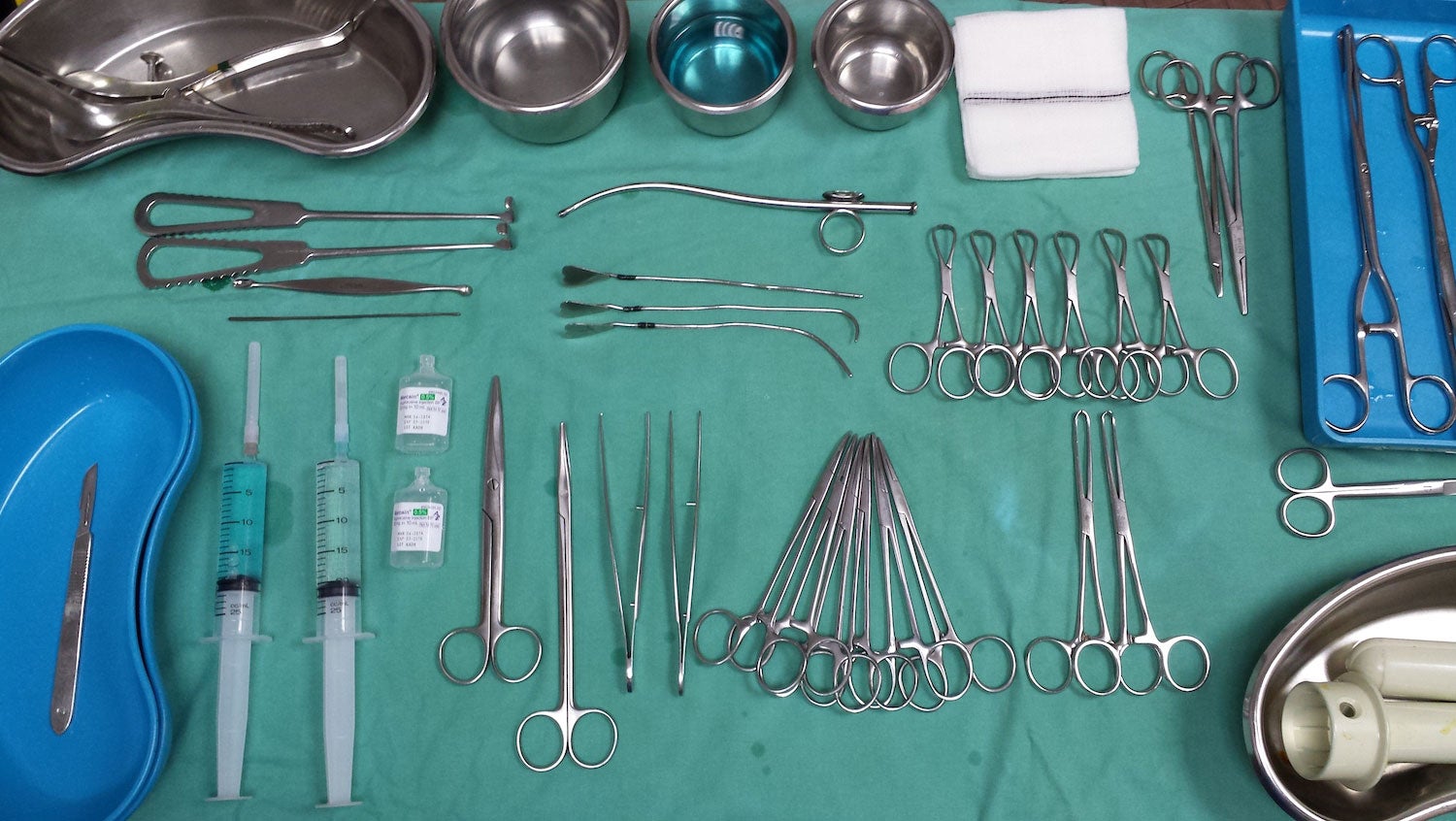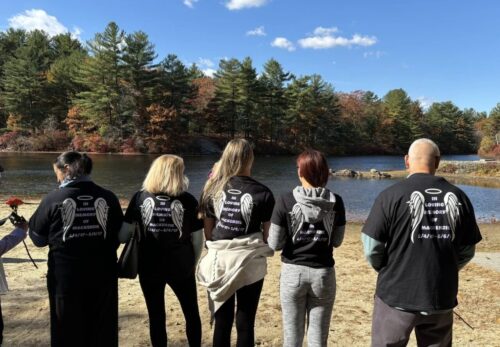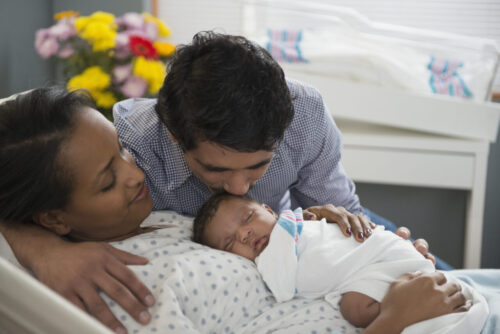Socially Responsible Surgery: Creating a Home for Public Health and Advocacy in Surgery
October 9, 2019
By Ray Hainer

Getty Images
A grassroots organization of surgeons and medical students is shining a light on social determinants of health in surgery.
For years, Tracey Dechert, MD, watched as talented medical students with a passion for public health and social justice hesitated, conflicted, between a career in surgery and other specialties that felt more obviously in sync with their values and interests.
With its intensive training and focus on technical skill and clinical expertise, surgery as a field has been slower than specialties like pediatrics or family medicine to embrace the social determinants of health (SDOH) and other non-medical concerns. As a result, Dechert observes, med students drawn to health equity and underserved patient populations have tended to assume there’s no room for that work in surgery, with the notable exception of medical missions and global surgery.
“I kept talking to them individually and convincing them, ‘No, that’s not true — you can be a surgeon and care about these issues, you can stay local and do this work,'” says Dechert, a trauma and critical care surgeon at Boston Medical Center (BMC) and an associate professor of surgery at the Boston University School of Medicine (BUSM). “I got tired of that conversation and hearing the same things, and that’s when I formed the group.”
That was five years ago. The group, a half-dozen like-minded med students who first came together over pizza at Dechert’s apartment, has since evolved into Socially Responsible Surgery (SRS), a fluid yet fast-growing organization with national aspirations that recently launched its second chapter, at the UC Davis School of Medicine.
SRS describes socially responsible surgery as a field of study and clinical practice that combines surgery, public health, and a commitment to underserved patients in communities of all kinds â rural, urban, and global. Through research, education, and advocacy, SRS aims to reposition the role of surgery in public health and elevate SDOH in surgical training and care.
Through research, education, and advocacy, SRS aims to reposition the role of surgery in public health and elevate SDOH in surgical training and care.
“Surgery deals with sick patients,” says Kara Kleber, MD, a first-year general surgery resident and the founder of the UC Davis chapter. “And I think it’s our duty, just like any other field, to try to prevent the bad outcomes of surgical disease. How do you do that? You look at what is at the root.”
The evolution of Socially Responsible Surgery
The early days of SRS were “very grassroots-y,” Dechert says. Gradually the initial meetups and informal discussions gave rise to a name and a logo, research projects and presentations at national surgery meetings, and an article in Frontiers in Surgery outlining the key principles of socially responsible surgery.
The group has expanded rapidly. SRS launched a two-year research fellowship in surgical health equity in 2017, and more than a dozen pilot programs and research projects are now under way beneath the SRS banner. Surgery residents and a small team of faculty advisers are looking at a wide range of SDOH-related topics, including the impact of food insecurity on preoperative nutrition, and the rates of post-surgery rehabilitation among victims of violence. Other areas of interest include the long-term impact of nonfatal firearm injuries and the link between primary language and surgery outcomes.
 The cofounders of Socially Responsible Surgery outlined their key principles and aims in a 2017 paper in the journal Frontiers in Surgery.
The cofounders of Socially Responsible Surgery outlined their key principles and aims in a 2017 paper in the journal Frontiers in Surgery.
The ideas that gave shape to SRS aren’t brand new to BMC. The hospital serves a predominantly low-income population and has one of the busiest trauma centers in the region, and its surgeons have long been interested in health disparities and issues such as community violence prevention. SRS now provides a shared framework and language for what had been a loosely connected set of activities spanning BMC and BUSM.
In addition to the research projects, SRS has pushed to integrate socially responsible surgery in the formal medical school curriculum. Three years ago, SRS created a service-learning project in which first-year med students screen surgery patients for SDOH and help them understand their procedures, with the goal of improving their health literacy, inpatient experience, and outcomes. Dechert and colleagues are also working to incorporate socially responsible surgery into the surgery clerkship for third-year students.
The heavy involvement of students and residents has given SRS a built-in pollination tool. Over the past five years roughly 200 students have joined the SRS fold and then graduated, carrying the organization’s principles with them to surgical residencies at institutions including the University of California-San Francisco, Vanderbilt University Medical Center, and the Yale University School of Medicine.
“I’m planting seeds everywhere,” Dechert says.
Branching out
Kleber is one of those seeds. As a student at BUSM, she fit the SRS profile to a T. On the one hand, a long-standing interest in engineering and anatomy drew her to surgery. On the other she felt the pull of pediatrics and family medicine. She’d volunteered in a Ugandan HIV clinic as an undergrad at the University of Pittsburgh and knew she wanted to work with vulnerable patients.
“I was having a hard time reconciling those two interests, and that’s how I ended up meeting with Dr. Dechert and getting involved,” Kleber recalls. “I said, ‘This is the conflict I’m having: I want to do this kind of work, and I don’t see it being valued in the surgical field as much.'”
Two years later, when Kleber was applying to surgery residency programs, socially responsible surgery came up during her interview at UC Davis. The chair of the department of surgery, Diana Farmer, MD, had been struck by a presentation on SRS as a visiting professor to BUSM in 2016, and during the interview she told Kleber, “If you come here, we’d like you to start this.”
With Farmer’s support, Kleber recruited a handful of medical students and fellow residents and launched the UC Davis chapter of SRS as a first-year resident in the fall of 2018. The group, which meets every six weeks to discuss a growing portfolio of initiatives and research projects, is focused on many of the same areas as their counterparts in Boston, including SDOH screening in the surgery department and surgical outcomes in patients who have suffered violent injuries.
 Surgeons at UC Davis Medical Center, which is located in Sacramento and serves a wide swath of Northern California stretching to the Oregon border, encounter a mix of social determinants of health associated with both urban and rural populations. (Wikimedia Commons)
Surgeons at UC Davis Medical Center, which is located in Sacramento and serves a wide swath of Northern California stretching to the Oregon border, encounter a mix of social determinants of health associated with both urban and rural populations. (Wikimedia Commons)
In an echo of her own experience, Kleber often also finds herself in Dechert’s shoes, talking with med students who are struggling with the same ambivalence she felt about her own career path.
“When I started this program,” Kleber says, “I had multiple medical students who had just tangentially heard about what I was doing come up to me. I had one say, ‘I want to be a surgeon, but I want to work on improving breast cancer outcomes for Latinx people. Can I do that?’ And I’m like, ‘Yes, you can.’ If you want to attract the best and the brightest people, you need to show them the culture for this is there.”
Strength in numbers
SRS became a nonprofit corporation late last year, and Dechert and her colleagues hope to scale the organization further using UC Davis as a blueprint. As many as 10 other academic medical centers have expressed interest in starting chapters, and if the SRS network continues to grow as expected, it will create new opportunities to collaborate on multisite studies and advocacy efforts.
Advocacy of all kinds is a core part of SRS. Dechert and colleagues write articles and op-eds, maintain active Twitter handles (@surgicalequity, @UCDavisSRS), and have participated in public demonstrations such as the 2018 March for Our Lives rally to combat gun violence. But developing a broader base of research is also critical to their advocacy mission, Dechert says.
 SRS members, including cofounder Tracey Dechert, MD (at far right), frequently participate in marches and rallies under the banner of SRS. (@TraceyDechert)
SRS members, including cofounder Tracey Dechert, MD (at far right), frequently participate in marches and rallies under the banner of SRS. (@TraceyDechert)
In the same way that translational research brings basic science to the bedside, she explains, the ultimate goal of SRS is to translate surgical research into policy changes that will address SDOH at a community and national level. The organization offers a way for surgeons and trainees across the country to contribute to these efforts in a systematic way.
“There were different people doing this type of work here or there, but there was no group or label to it,” Dechert says. “There’s a home for this in surgery now. Part of the success of our group is the fact that we’re touching something that’s already out there. People are just looking for a way to embrace it.”


